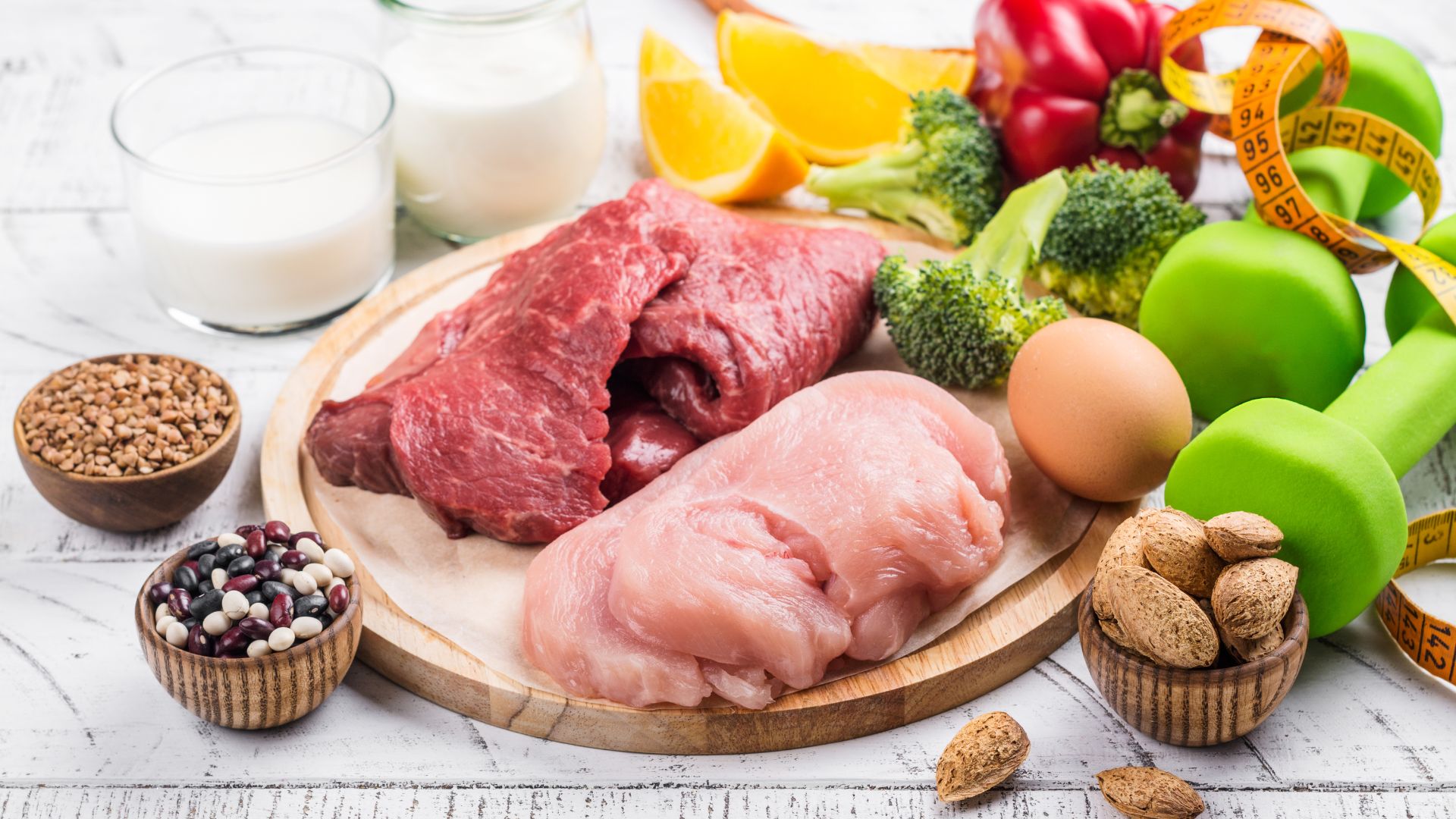Ways to build muscle
When it comes to enhancing fitness, building muscle is often the top priority.
While gaining significant amounts of muscle may seem difficult, with proper training programs and a healthy diet, building muscle can be done for most people.
Muscle building basics
Anatomically, skeletal muscle is a series of parallel, cylindrical fibers that contract to produce force. This muscle contraction allows all external human movements to occur.
Your body is in a constant process of replenishing and recycling amino acids, or the building blocks of protein, in your muscles.
The key to building muscle is to increase the rate of protein deposition while decreasing the rate of protein breakdown.
This process of increasing muscle mass is known as muscle hypertrophy, and is a primary goal of resistance training.
The muscle building process is driven by several factors, including hormones such as testosterone and growth hormone, as well as the availability of amino acids and other nutrients.
To build new muscle tissue, the primary tools for increasing the rate of protein synthesis in the body are performing resistance training and getting adequate amounts of protein and nutrients in general.
The right amount of resistance training prompts the body's hormonal response toward building muscle, but requires the availability of enough protein and energy to ensure that the process results in muscle gain rather than muscle loss.
Benefits of increasing muscle mass:
1. Muscles support joints
Our muscles provide a huge support system for our joints. Because it absorbs a little of the impact that comes through the knees and hips when running, jumping, and even walking. The more muscle we have, the more force is absorbed, keeping our joints from long-term damage.
2.More muscle helps burn more calories
Increasing your muscle mass increases your metabolism, which means you burn more calories during the day at rest. A pound of muscle burns about 13 calories per day, while one pound of adipose tissue burns only about 4 calories.
However, if you are building muscle, you are definitely exercising more often, and inherently burn more calories throughout the day.
3. Muscles help build strong bones
The extra pressure on our bones is actually what helps them grow. Therefore, loading the bones with some sports actually helps them become stronger.
Bone density is increasingly important when it comes to aging. Bone mass gradually decreases as we age, making it more brittle and therefore more likely to break, in a process known as osteoporosis. Building muscle can help prevent this from happening.
4. Muscles help facilitate daily life
Increasing muscle mass can improve your daily functions. Many aspects of life become easier as you get stronger – no more losing your breath walking up one flight of stairs or dropping heavy grocery bags.
5. Muscles make you beautiful
Yes, there are obvious aesthetic benefits to adding muscle mass to your body. Your clothes will fit you better, some may consider you more attractive and you will feel more confident. These are all big reasons why men spend hours in the gym holding a barbell in pursuit of gains. There's no shame in making your beauty a reason to hit the gym — it still leads to all the other health benefits.

What is the right diet if you want to build muscle?
1. Eggs
Eggs contain high-quality protein, healthy fats, and other important nutrients such as B vitamins and choline.
Proteins are composed of amino acids. Eggs contain large amounts of the amino acid lysine, which is especially important for muscle gain.
B vitamins are also extremely important for a variety of processes in your body, including energy production.
2. Salmon
Salmon is a great choice for building muscle and overall health.
Each 3-ounce (85-gram) serving of salmon contains about 17 grams of protein, 1.5 grams of omega-3 fatty acids, and several important B vitamins.
3. Chicken breasts
There's a good reason chicken breasts are considered a staple for gaining muscle: They're packed with protein. Each 3-ounce (85-gram) serving contains about 26.7 grams of high-quality protein.
4. Greek yogurt
Dairy products contain not only high-quality protein, but also a combination of fast-digesting whey protein and slow-digesting casein protein.
5. Tuna
In addition to 20 grams of protein per 3 ounces (85 grams), tuna contains high amounts of vitamin A and several B vitamins, including B12, niacin, and B6. These nutrients are important for optimal health, energy and exercise performance.
Additionally, tuna provides significant amounts of omega-3 fatty acids, which may support muscle health.
6. Lean beef
Beef is full of high-quality protein, B vitamins, minerals and creatine.
Some research has shown that eating lean red meat can increase the amount of lean mass gained through weight training.
Even when you're trying to gain muscle, it may be better to choose beef that supports muscle gain without providing a lot of extra calories.
For example, 3 ounces (85 grams) of 70% lean ground beef contains 235 calories and 16 grams of fat.
7. Shrimp
Shrimp is almost pure protein. Each 3-ounce (85-gram) serving contains 19 grams of protein, 1.44 grams of fat, and 1 gram of carbohydrates.
While healthy fats and carbohydrates are important in your overall diet, adding some shrimp is an easy way to get muscle-building protein without a lot of extra calories.
What is the right diet if you want to build muscle?
The best diet for building muscle should add 500-1,000 calories per day in addition to your current diet.
But this should not be taken as general advice for everyone without taking into account what you currently eat in terms of calories and protein.
You should eat foods rich in complex carbohydrates and high-quality protein sources, which can be from animals and plants.
A daily protein intake of 1.6 grams to 2.2 grams has been shown to be the most influential factor when trying to improve muscle mass building combined with resistance training.
- Protein bars (Vanity Wafer - Mousse Bar - Queen Bar - Zero Bar - Whey Bar)
References:
Ø https://www.healthline.com/health/fitness/how-to-gain-muscle#the-basics
Ø https://www.menshealth.com/fitness/a19534499/10-muscle-building-tips/
Ø https://www.healthline.com/nutrition/26-muscle-building-foods#fa-qs
Ø https://www.yopro.com.au/what-to-eat-to-gain-muscle-mass-effectively/

